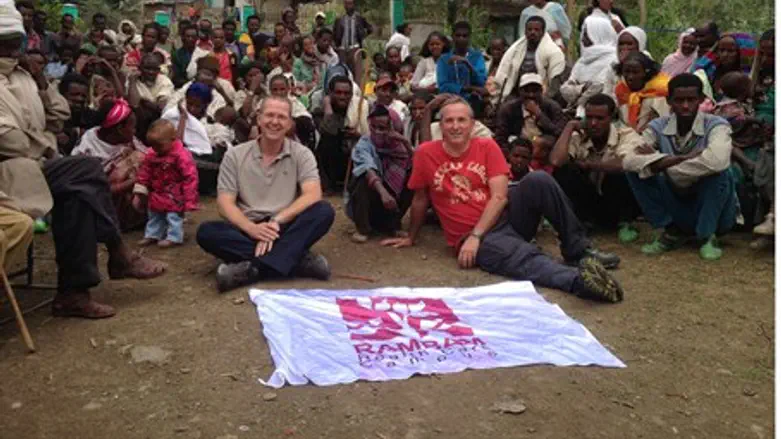
In the space of a few days, an international delegation that included two physicians from the Rambam Hospital in Haifa changed the lives of dozens of children and adults in northern Ethiopia.
A surgical marathon was conducted in northern Ethiopia as part of Operation Smile, a program focusing on third world countries to treat cleft lip and palate. After landing in the nation’s capital, the delegation travelled an hour to the city of Mekele to set up base.
The 40-member delegation flew in from South Africa, Peru, United States, Sweden, India, Ghana, Ethiopia, and of particular note - the Middle East -represented by two Israeli physicians from Rambam, Dr. Omri Emodi, a senior physician in the Department of Oral and Maxillofacial Surgery, and Dr. Zach Sharony, a senior plastic surgeon. An Egyptian orthodontic specialist was part of the delegation as well.
The residents of Mekele are mostly from the area’s ruling Tigri tribe, most of whom are Catholics. The city itself has about 200,000 inhabitants and is surrounded by villages.
News of the delegation’s arrival spread throughout the region; when they arrived at the main city hospital there were already long lines of patients seeking medical help and a solution to their problems. During the first few days in Ethiopia, the delegation performed examinations to determine which patients could be best treated in the short time available - 11 days in total.
After seeing dozens of patients, 91 patients were chosen. Over the remaining five days the delegation set out to do the impossible: from dawn to dusk, four surgical tables were under constant use for patients ranging in age from six months to 50 years and more. Each one had suffered from life-long facial defects, and medical and speech problems due to cleft lip and/or palate.
Full treatment involved multi-disciplinary teams that included surgeons, anesthesiologists, nurses, operating room technicians, pediatricians, speech therapists, dentists, orthodontists, operating room technicians, and more, all of whom were assisted by translators, and logistics and hospital professional staff.
In addition to treating the local patients, the international delegation utilized the operating room time to train local doctors, hospital staff, and specialists who came from throughout Ethiopia with the particular goal of advancing their knowledge to help their patients.
"This is the second time I’ve come to Ethiopia under this framework," Dr. Emodi said.
"I was amazed by my first experience; this time I've been excited by the immense satisfaction gained from this moving situation. I have met people who needed help and couldn’t get it, and I’ve had the power and tools to meet their need and to improve their quality of life - there is no better way."